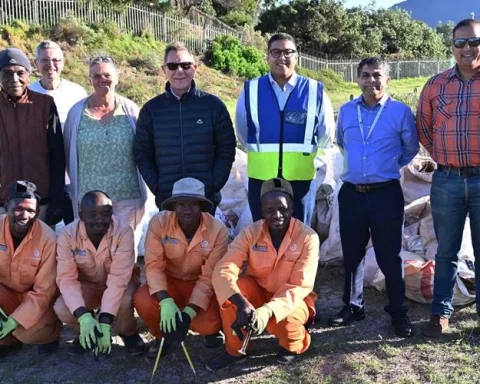The Summit on Ethical Leadership in Local Government has taken place in South Africa, coinciding with the start of Human Rights Month. The country’s local government Anti-Corruption Strategy encourages ethical standards, with a focus on integrity, accountability, and commitment to public service. The Local Government Ethical Leadership Initiative and Anti-Corruption Forum are working to instill an ethical culture, including the development of a Code for Ethical Leadership in Local Government. The Ethics Institute, SALGA, and the Moral Regeneration Movement have been instrumental in supporting this endeavor.
What is ethical leadership in South Africa?
Ethical leadership in South Africa’s local government signifies a triad of integrity, accountability, and an unwavering commitment to public service. It demands that leaders acknowledge past wrongs, address present challenges, and guarantee that every citizen has access to the fundamental services necessary for their wellbeing. The Local Government Anti-Corruption Strategy encourages municipal leadership to set an ethical standard and exemplify it. The Local Government Ethical Leadership Initiative (LGELI) and the Local Government Anti-Corruption Forum (LGACF) aim to instill this ethical culture.
In a significant event marked by the convergence of distinguished personalities, public and private sector stakeholders, media, and civil society members, the Summit on Ethical Leadership in Local Government convened. The timing was impeccable, coinciding with the dawn of Human Rights Month in South Africa, a period of reflection and remembrance for the nation. The orchestrator of this essential confluence, Minister Thembi Nkadimeng, spoke to the attendees with a compelling blend of historical contemplation, contemporary examination, and future visions.
The Journey of Ethical Leadership
Nkadimeng initiated the discourse by recognizing the collective journey the country has undertaken from the harsh days of apartheid to becoming a thriving democratic nation. She attributed this metamorphosis to the valor of those who braved the odds to fight injustice. At present, the South African government is relentlessly striving to construct a more inclusive and radically reformed society, a mission that unequivocally requires ethical leadership.
The Essence of Ethical Leadership
The assertion of ethical leadership in the realm of local government is an integral part of this mission. Ethical leadership, as Nkadimeng detailed, signifies a triad of integrity, accountability, and an unwavering commitment to public service. It demands that leaders acknowledge past wrongs, address present challenges, and guarantee that every citizen has access to the fundamental services necessary for their wellbeing.
Nkadimeng painted a lucid vision of the potential impact of this form of leadership. It could mean understanding the necessity of supplying clean, running water to the elderly or appreciating the role of Local Economic Development (LED) in strengthening local businesses and stimulating socio-economic growth. These concrete examples highlighted the government’s pledge towards its citizens and its resolve to uphold the golden rule of treating others as one wishes to be treated.
Confronting Contemporary Challenges
However, Minister Nkadimeng did not shy away from candidly addressing the obstacles confronting South African society today. Despite substantial progress in promoting human rights and access to basic amenities over the past three decades, entrenched inequalities, ingrained injustices, and rampant poverty continue to sideline millions of citizens. The leaders and stakeholders within local government must face these challenges with courage, prioritizing the needs of the society’s most vulnerable members.
In a stirring moment, the minister posed a thought-provoking question to the audience: “Are you satisfied with the service delivery in our municipalities as leaders and stakeholders? If the tables were turned, would you be content with what you receive?” This question serves as a stark reminder of the responsibility each person bears in shaping the future of their community and nation.
Strides Towards an Ethical Future
South Africa’s Constitution compels a high degree of professional ethics in public service, a principle that should be the lodestar of public administration. The Local Government Anti-Corruption Strategy reinforces this, encouraging municipal leadership to set an ethical standard and exemplify it. In Nkadimeng’s perspective, cultivating an ethical culture simplifies the choice for officials and councilors to act righteously rather than erroneously.
The inception of the Local Government Ethical Leadership Initiative (LGELI) and the Local Government Anti-Corruption Forum (LGACF) marked a significant progression towards instilling this ethical culture. The LGELI project, in sync with the strategic objectives of the Local Government Anti-Corruption Strategy, aimed to formulate a Code for Ethical Leadership in Local Government.
Collaborative Efforts for Ethical Governance
The collaborative efforts between state and non-state actors in this initiative underscore the necessity of communal responsibility in addressing complex challenges. This partnership also illustrates the government’s commitment to curbing unethical conduct and corruption and fostering a cooperative approach to governance essential for sustainable development.
The Ethics Institute, SALGA, and the Moral Regeneration Movement have been pillars in this sustained endeavor. Their alliance with the Department has been instrumental in tackling ethical issues and contributing towards good municipal governance. Nkadimeng expressed optimism that the strategic dialogues facilitated by these organizations would yield tangible strategies aimed at institutionalizing and implementing the Code for Ethical Leadership within the sector.
The Road Ahead
Nkadimeng underscored the urgent need to protect whistleblowers and witnesses, a critical tool in combating corruption and unethical behavior. She recognized the need for more robust measures to shield whistleblowers, who are crucial cogs in the fight against corruption.
The role of leadership in instilling a culture of ethics, integrity, and accountability at all levels was also emphasized. This leadership vision, according to Nkadimeng, includes promoting ethical business practices, fostering accountability, and creating an environment that enables effective oversight structures.
Nkadimeng concluded her address with a quote from the Father of the Nation, Nelson Mandela – a fitting finale to the speech, encapsulating the values that Nkadimeng urged the audience to embody – those of morality, integrity, and consistency.
While the task of institutionalizing ethical leadership at all government levels is significant, the unflinching commitment of the Minister and her collaborators offers a glimmer of hope. As we continue to observe Human Rights Month, her call for integrity, accountability, and a commitment to public service is a powerful reminder of our collective responsibility in sculpting a more equitable society.
1. What is ethical leadership in South Africa’s local government?
Ethical leadership in South Africa’s local government signifies a triad of integrity, accountability, and an unwavering commitment to public service. It demands that leaders acknowledge past wrongs, address present challenges, and guarantee that every citizen has access to the fundamental services necessary for their wellbeing.
2. What is the Local Government Anti-Corruption Strategy in South Africa?
The Local Government Anti-Corruption Strategy encourages municipal leadership to set an ethical standard and exemplify it. It reinforces the high degree of professional ethics in public service, a principle that should be the lodestar of public administration.
3. What is the Local Government Ethical Leadership Initiative (LGELI)?
The Local Government Ethical Leadership Initiative (LGELI) is an initiative aimed at instilling an ethical culture in South Africa’s local government, in sync with the strategic objectives of the Local Government Anti-Corruption Strategy. It aims to formulate a Code for Ethical Leadership in Local Government.
4. What organizations have been instrumental in supporting the Building the Bedrock of Ethical Leadership in South Africa?
The Ethics Institute, SALGA, and the Moral Regeneration Movement have been instrumental in supporting this endeavor.
5. What challenges confront South African society today?
Despite substantial progress in promoting human rights and access to basic amenities over the past three decades, entrenched inequalities, ingrained injustices, and rampant poverty continue to sideline millions of citizens. Leaders and stakeholders within local government must face these challenges with courage, prioritizing the needs of the society’s most vulnerable members.
6. What is the role of leadership in instilling a culture of ethics, integrity, and accountability at all levels?
Leadership vision includes promoting ethical business practices, fostering accountability, and creating an environment that enables effective oversight structures. Ethical leadership requires leaders to promote a culture of ethics, integrity, and accountability at all levels, recognizing the necessity of supplying clean, running water to the elderly or appreciating the role of Local Economic Development (LED) in strengthening local businesses and stimulating socio-economic growth.











